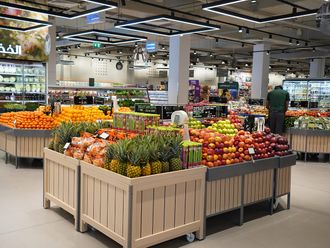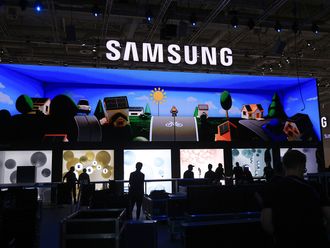Companies flaunt their corporate social responsibility records as trophies in the corporate showcases and lose no opportunity to brag about their commitment to ‘giving back’ to the society. CSR is an integral part of any corporate presentation and adds the essential frills to annual reports and brochures. Yet, for many companies, social responsibility means little more than the grand opportunity for their CEOs to pose with giant-sized cheques given to charities.
But here is a UAE company which has made social responsibility the main plank of its business model and yet achieved great commercial success. So much so that one of the world’s top companies in its sphere of activity has opted to join it as a majority partner. The founder of the company, which is engaged in the manufacture of industrial valves and steel castings used in highly specialised industries such as oil and gas, prefers to call himself a social entrepreneur rather than an industrialist. Because he feels the growth of his company to be among the world’s top three was sustained as much by aspects of social entrepreneurship as it was for engineering feats.
When the US-educated Indian engineer Faizal Kottikollon decided to upgrade his metal scrap recycling facility of 1995 in Ajman into a $1 million foundry of valve manufacturing—and dreams—within the next two years, little did he realise that he was destined to rub shoulders with the global leaders in the business. As the foundry business grew into a state-of-the-art facility under the name KEF Holdings at Sharjah’s Hamriyah Free Zone in 2008, it became the first integrated manufacturer of industrial valves in the Middle East and started competing against European foundries that had been active for a century. With that, Faizal and his facility started attracting global attention.
Within months, the high-profile Dubai International Capital (DIC) acquired a 45 per cent stake in KEF Holdings for $126 million. Three years later, Tyco International, the $20 billion industrial conglomerate based in the US, and also a client of KEF, acquired a 75 per cent stake in the company for $300 million.
Highly successful as he has been with his business, Faizal believes that a company’s progress is not about building plant and machinery alone, but in improving the lives of the people who sustain the business. People are the wealth of any company, he insists and acknowledges that he owes them a great deal in return for the blessings he has received.
Faizal recalls how his managers questioned his idea of deploying the entire profit of about Dh20 million made during the first year of his business into setting up a Community Centre, which was meant to upgrade the communication and other skills of the employees and promote self-improvement techniques. Although he was disheartened by the lukewarm response from the staff initially, his deep emotional involvement with the project forced a change of heart among his managers, who volunteered one by one to assume the role of teachers and inspirational leaders. Faizal’s community centre soon became a talk of the town and won wholesome praise, including a rare visit by the Ruler of Sharjah, who congratulated him for his unique initiative.
Inspired by Bill Gates and Melinda Foundation and the record of India’s Tata in the service of the community, Faizal formed the Shabana & Faizal Foundation, which is actively involved in social and educational programmes.
The foundation funds and supports activities designed to improve the lives of the under-privileged. Recently, it made an endowment of Dh5 million to the American University of Sharjah for providing scholarship to needy students. It is also working with the University of Sharjah for establishing a Cancer Research Centre.
Having set up KEF Company as a new entity headquartered in Dubai’s DIFC, the social entrepreneur is now fully concentrating on businesses that will help improve the lives of the common people, such as education, healthcare, housing, agriculture and infrastructure sectors in the UAE as well as India.
Faizal believes that his success with metal engineering can now be replicated in engineering a new momentum in community development.
— The writer is a UAE-based journalist












